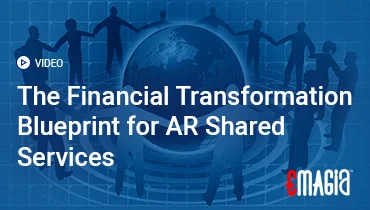Introduction
The financial sector is undergoing a transformative shift with the integration of Generative Artificial Intelligence (GenAI). From automating routine tasks to enhancing decision-making processes, GenAI is poised to redefine finance and accounting practices. This comprehensive guide delves into the multifaceted applications of GenAI in finance and accounting, exploring its benefits, challenges, and future prospects.
Understanding Generative AI in Finance & Accounting
What is Generative AI?
Generative AI refers to algorithms that can create new content, such as text, images, or data, by learning from existing datasets. In finance and accounting, GenAI can generate financial reports, predict market trends, and automate data analysis.
Evolution of AI in Financial Services
The journey of AI in finance began with rule-based systems and has evolved into sophisticated machine learning models. The advent of GenAI marks a significant milestone, enabling more dynamic and context-aware applications.
Key Drivers for GenAI Adoption
- Data Abundance: The exponential growth of financial data necessitates advanced tools for analysis.
- Operational Efficiency: GenAI automates repetitive tasks, reducing manual errors and increasing productivity.
- Regulatory Compliance: Automated monitoring and reporting assist in adhering to complex regulatory requirements.
Core Applications of Generative AI in Finance & Accounting
Automated Financial Reporting
GenAI can generate comprehensive financial reports by analyzing vast datasets, ensuring accuracy and consistency. This automation accelerates reporting cycles and frees up human resources for strategic tasks.
Predictive Analytics and Forecasting
By analyzing historical data and market trends, GenAI models can forecast financial outcomes, aiding in budgeting and strategic planning. This predictive capability enhances decision-making and risk management.
Fraud Detection and Risk Management
GenAI algorithms can identify unusual patterns and anomalies in financial transactions, flagging potential fraudulent activities. This proactive approach strengthens security and minimizes financial losses.
Intelligent Auditing
Traditional auditing involves sampling, which may overlook anomalies. GenAI enables full-population audits, analyzing every transaction for discrepancies, thus enhancing audit quality and compliance.
Expense Management and Reconciliation
GenAI streamlines expense categorization and reconciliation processes, reducing manual intervention and errors. It can automatically match invoices with payments, ensuring accurate financial records.ZBrain
Tax Compliance and Optimization
By staying updated with tax regulations, GenAI assists in accurate tax calculations and filings. It can also identify tax-saving opportunities, optimizing financial outcomes.
Customer Service and Chatbots
GenAI-powered chatbots provide instant responses to customer queries, enhancing user experience. They can handle routine inquiries, allowing human agents to focus on complex issues.
Benefits of Integrating GenAI in Finance & Accounting
Enhanced Efficiency
Automation of routine tasks leads to faster processing times and reduced operational costs.
Improved Accuracy
GenAI minimizes human errors in data entry, calculations, and analysis, ensuring reliable financial information.
Scalability
GenAI systems can handle increasing volumes of data without compromising performance, supporting business growth.
Strategic Insights
Advanced analytics provide deeper insights into financial trends, aiding in informed decision-making.
Challenges and Considerations
Data Privacy and Security
Handling sensitive financial data requires robust security measures to prevent breaches and ensure compliance with data protection regulations.
Model Bias and Fairness
Ensuring that GenAI models do not perpetuate existing biases is crucial for fair financial practices.
Integration with Existing Systems
Seamless integration of GenAI with legacy systems can be complex and may require significant investment.
Regulatory Compliance
Staying abreast of evolving regulations is essential to ensure that GenAI applications remain compliant.
Future Outlook
The integration of GenAI in finance and accounting is expected to deepen, with advancements in natural language processing and machine learning enhancing capabilities. We anticipate more personalized financial services, real-time analytics, and autonomous decision-making systems.
How Emagia Transforms Finance & Accounting with Generative AI
Emagia leverages Generative AI to revolutionize finance and accounting operations. Its AI-powered platform automates accounts receivable processes, enhances cash flow forecasting, and improves customer interactions. By integrating GenAI, Emagia delivers intelligent automation, predictive analytics, and actionable insights, enabling organizations to optimize financial performance and drive growth.
Frequently Asked Questions
What is Generative AI in finance and accounting?
Generative AI refers to AI technologies that can create new content or data by learning from existing information. In finance and accounting, it is used to automate tasks like report generation, forecasting, and data analysis.
How does GenAI improve financial forecasting?
GenAI analyzes historical data and market trends to predict future financial outcomes, enhancing the accuracy of forecasts and aiding in strategic planning.
Can GenAI detect financial fraud?
Yes, GenAI can identify anomalies and unusual patterns in financial transactions, flagging potential fraudulent activities for further investigation.
Is GenAI compliant with financial regulations?
GenAI can be configured to adhere to financial regulations by incorporating compliance rules into its algorithms, ensuring that outputs meet regulatory standards.
What are the risks of using GenAI in finance?
Risks include data privacy concerns, potential biases in AI models, integration challenges with existing systems, and the need to stay updated with regulatory changes.
By embracing Generative AI, the finance and accounting sectors can unlock new levels of efficiency, accuracy, and strategic insight, positioning themselves at the forefront of technological innovation.



